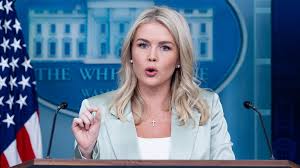Clash Over Jimmy Kimmel Live! Suspension Sparks Debate on Media Control
A political firestorm erupted this week after the indefinite suspension of Jimmy Kimmel Live!, with former President Barack Obama accusing the administration of coercing media companies—and the White House pushing back forcefully.
The controversy spotlights the delicate balance between free speech, editorial independence, and political influence over entertainment.
The Dispute: Obama’s Warning vs. White House Rebuttal
Former President Obama entered the fray via social media, accusing the current administration of escalating “cancel culture.”
He argued that media companies were being pressured with regulatory threats unless they silenced or terminated critical voices—an act he described as antithetical to First Amendment protections.
In response, White House Press Secretary Karoline Leavitt told Fox News that Obama was uninformed and wrong. She insisted the decision to suspend Kimmel came from ABC executives alone. “It did not come from the White House,” she said, noting she was with the President overseas when the move was announced. She claimed the suspension stemmed from Kimmel deliberately misleading his audience about a deceased public figure during a national moment of mourning—something she said ABC had the right to act upon.
Leavitt also emphasized that President Trump was unaware of the decision at the time, arguing it was independent of the administration.
What Kicked It Off: Kimmel’s Remarks and the Fallout

Jimmy Kimmel Live! was taken off the air after the host made controversial remarks related to the assassination of conservative activist Charlie Kirk. In his monologue, Kimmel accused elements of the MAGA movement of politicizing Kirk’s death—a statement met with sharp backlash.
Following the comments, pressure mounted from Republicans and the FCC. Broadcasters such as Nexstar and Sinclair preempted the show on their ABC affiliates, citing concerns over public backlash and regulatory consequences. ABC, under Disney, initially confirmed the suspension as “indefinite.”
Later, Disney announced that the show would return, though not all stations committed to rebroadcasting it. Some affiliates continued to preempt the program, citing the original reasoning that fueled the suspension.
The Broader Stakes: Media, Politics, and Free Speech
At its core, this conflict centers on a few key issues:
Editorial independence vs. political pressure. Was ABC acting under its own discretion, or yielding to governmental influence?
Where do accountability and consequences lie? Should public figures be immune from rebuke when their statements are judged as misleading or inflammatory?
Consequences for entertainers. When political commentary overlaps with satire, how much risk do hosts take? The Kimmel case is now being eyed as a precedent.
Supporters of Kimmel and advocates for press freedom have rallied behind him. Many argue that suspending a late-night comedian—over remarks made in the tender intersection of politics and entertainment—sets a dangerous precedent for self-censorship.
Meanwhile, critics say media platforms must also take responsibility when commentary crosses boundaries, especially in emotionally charged national moments.
What We Still Don’t Know
The full internal timeline of how ABC arrived at the suspension decision.
Whether the White House played any informal or backchannel role despite public denials.
The extent to which affiliate networks will continue preempting the show, even after its reinstatement.
How future FCC behavior will navigate this arena without appearing to be a tool for political retaliation.
Conclusion
The Jimmy Kimmel Live! suspension has become more than a late-night controversy—it’s a flashpoint in the ongoing struggle over the power to speak, the weight of consequences, and the independence of media. Obama’s warning and Leavitt’s retort both reflect deeper tensions about who holds influence over what we see, hear, and criticize.
As the show returns (or not) to some markets, the debate will not fade. The lines between entertainment, commentary, and politics are thinner now than ever. What remains is a test: can media maintain its autonomy when political pressure looms largest?
